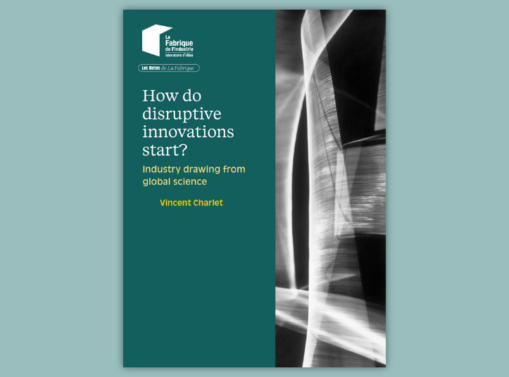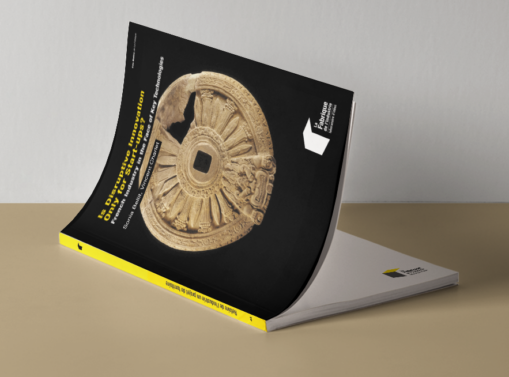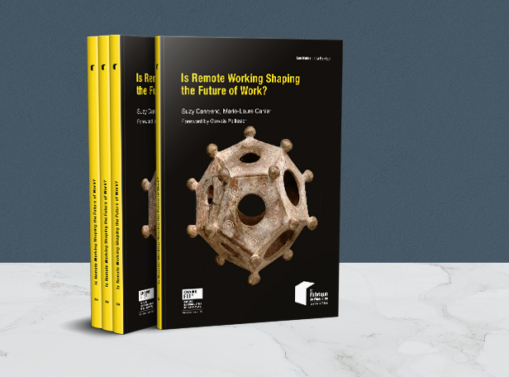Rebounding and reinventing: the resilience of mid-market companies
This Note takes the work further and looks at the resilience of these companies, in other words their capacity to stand up to a crisis, sometimes even using it as a springboard to bounce back stronger.
This document showcases some of the business success stories that La Fabrique de l’Industrie and the Ecole Paris du Management have been collecting since 2012. The series of seminars, backed by the UIMM and still taking place, features presentations by directors of mid-market companies (MMCs) or large SMEs aiming to move mid-market. To date, a total of about sixty mid-market business leaders have shared their experience.
A first publication came out in September 2015: Paroles d’ETI : les entreprises de taille intermédiaire à la conquête de la croissance. The note identified the strategic choices and success factors that enabled MMCs to grow and develop, so contributing to employment, local development, and the export capacities of our country.
This second volume takes the work further and looks at the resilience of these companies, in other words their capacity to stand up to a crisis, sometimes even using it as a springboard to bounce back stronger.
Crisis as a stimulus to rebound and reinvent
Five to eight years after the 2009 financial crisis, numerous MMC directors readily evoked the shock generated by that event. For business leaders, the episode seems to mark a particular point in the story of their companies, followed by what they describe as a “rebound” (renaissance, reorganization). In the telling of this story, the way the crisis was managed acts like a tutor of resilience, writing the event into the company’s story and bringing future promise for the community.
What is resilience?
The psychiatrist Boris Cyrulnik has popularized this concept in a number of his works. He describes resilience as an intrinsic quality of individuals that enables them to overcome suffering, learn from their painful experiences, and become stronger in the process. In materials science, resilience is the capacity of a material to return to its original form after a shock. The concept has been adopted by the organization field, and numerous research studies have attempted to highlight the characteristics of “resilient” organizations.
For our guest speakers, the financial crisis represented a turning point after which their companies totally or partially reinvented themselves. There is a before and after 2009. When the crisis hit, these business leaders realized that uncertainty was permanent and that they would need to make it part of their strategic vision and its implementation. We also note that some of these companies had already experienced previous crises and developed a kind of specific habitus to transform a crisis into an opportunity.
By compiling their testimonials, this work aims to determine whether these companies share specific capacities that enable them to deal with shocks better, overcome the consequences of serious events, reinvent themselves, and lay claim to these difficult episodes. Which more or less corresponds to the concept of “resilience”. We have also examined whether they tackle rebound strategies in similar ways.
Scope of observation
Empirical and academic studies have looked at organizational resilience related to the 2008-2009 financial crisis, with a particular focus on the characteristics of family-run businesses. This category does not however totally correspond to that of MMCs, making it necessary to refine our scope of observation.
It is, in fact, important not to confuse MMCs with family businesses. The latter are found in all statistical categories and only represent 47% of total MMCs (and 70% of solely French-owned MMCs).
Similarly, MMCs are often described as purely industrial companies, yet this is not the case. Out of the 4,800 non-financial MMCs listed in France, only 1,500 are classified under the manufacturing industry, of which 41% are controlled by foreign groups. Foreign-controlled MMCs invest the biggest amounts of development resources and are most closely involved in international trade, often as part of intra-group transactions. In the manufacturing industry, their export rate amounts to 41% compared to 31% for French-controlled multinational MMCs, and 16% for Franco-French ones.
Our selected accounts mainly come from manufacturing MMCs, but also include companies providing services to industry. They employ an average 1,500 employees, and are mostly under sole ownership or have similar characteristics, even when listed on the stock exchange. As a result, they cannot be considered to represent all industrial MMCs, let alone MMCs as a whole.
To order the Note in paper version, please go to the Presses des Mines website.




